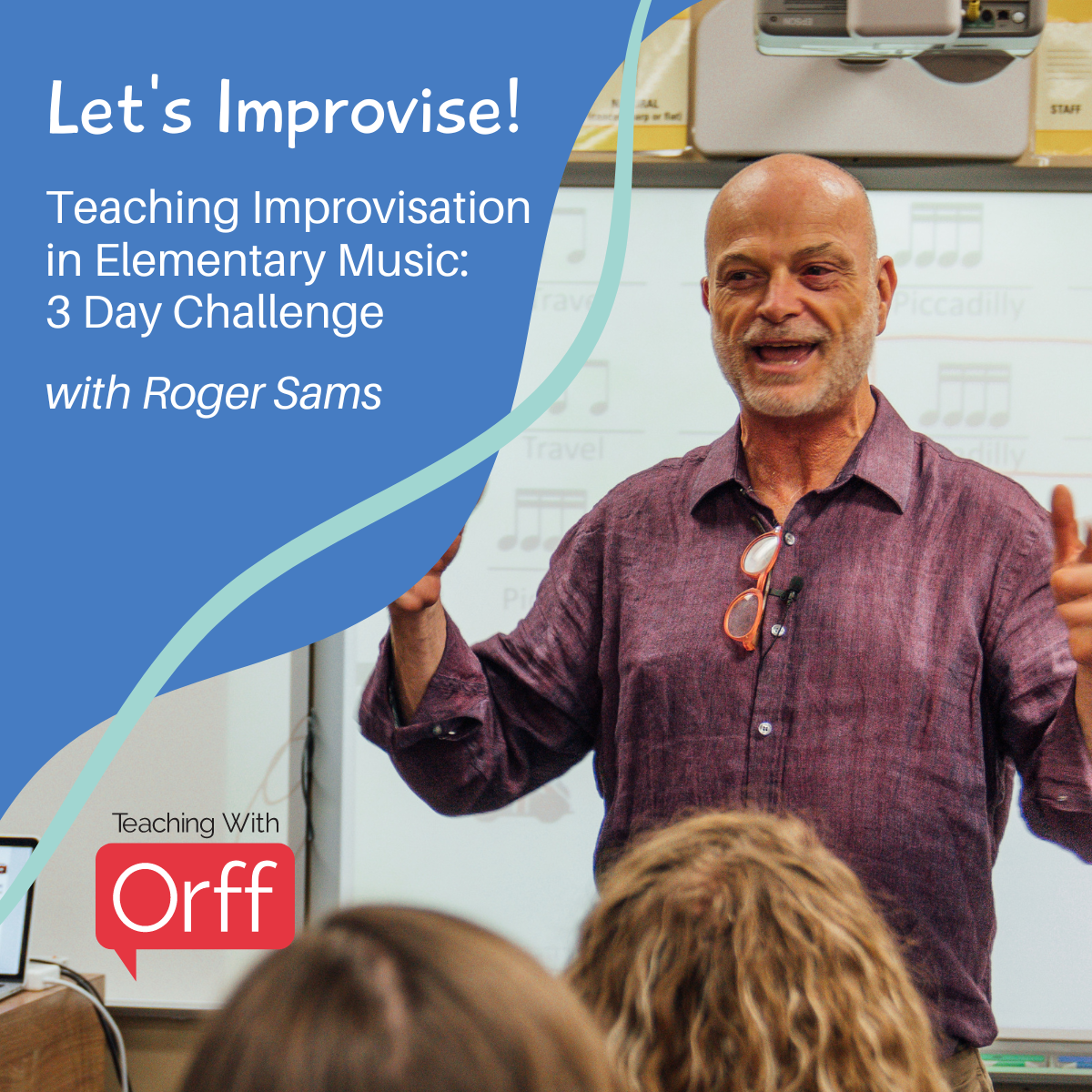
A Day in the Life of Orff Certification: Day 9
Orff Level I – Day 9
A continuation of the improvisation discussion from Day 7:
First, try and use predictable forms during improvisation pieces. You want the students to be concentrating on their improvisation skills, not their memorizing difficult form structures skills (remember that whole “working memory” thing from Day 4?).
Second, there are many ways to improvise in your classroom rather than just rhythm patterns, playing on recorder/barred instruments, and singing solfa. For example, I’ve had Kindergarteners lead each other in keeping the steady beat in different ways and having the class copy. It’s a great way to help them focus through a whole song and they start to think for themselves and lead each other. I’ve particularly enjoyed using the song “Everybody” by Ingrid Michaelson, especially around Valentine’s Day.
Roger had us improvise today by singing our own text that went with the song we were singing, which was a great way to get us laughing and stop stressing out about improvisation – creating music should be fun! We also did scat singing, which was a fun way to know if we understood the pentatonic scale without worrying about solfa syllables or creating coherent text. If these are too hard for your students, give them options of words they can sing and let them choose their melody. There are so many options to get kids improvising so we have to try and break out of our routines and habits and keep kids on their toes!
Roger’s Nuggets of Wisdom
(those small phrases that seem to pretty much sum up Orff Schulwerk)
“Be a really strong ______ grader” – When modeling a skill for a student, don’t play or sing like someone with a college degree in music – sound like a strong musician a grade ahead of them. For example, if I want to show third graders how to improvise, I should perform like a strong fourth grader would perform.
“Gut singing with skills” – This was said in relation to the scat improvisation we did today, but I think it goes for all sorts of improvisation. We are trying to teach our students to know the rules of music so well that it lives inside them and guides their creations inherently. We want them to know how to spot good music and how to make it on their own. As with any skill, this will take a lot of time to become engrained inside our students, but once it’s in there all the work will definitely be worth it.
See all posts by Erin Clevenger
Sign up for latest Orff Tips, Lesson Plans and Advocacy Tools

Empower your students to create their own music in this free 3-day challenge with Roger Sams. (Lessons delivered via email)

Learn about the legendary factory that started it all and why so many teachers like you love our instruments.
